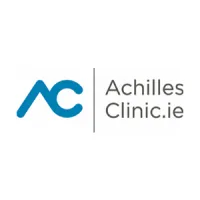
We have all been there, neglected a niggle in our foot and told ourselves that it would probably go away. Weeks have passed, even months, and it’s only getting worse. Then finally, when we are hobbling around barely able to walk, we decide to seek help…
Well, at Achilles Foot Clinic, we are here to help you.

How We Remove Stubborn Verrucas in Our Cork Clinic
Introduction
Welcome to Achilles Podiatry Clinic, your trusted podiatry clinic located in Ballincollig, Cork. One common issue we encounter in our practice is verrucas, or plantar warts, which can be stubborn and painful. In this article, we will explore how we safely and effectively remove these warts, along with the causes, treatments, and helpful tips for prevention.
What Are Verrucas?
Verrucas, also known as plantar warts, are small, benign growths that develop on the soles of the feet. They are caused by the human papillomavirus (HPV), which invades the skin through tiny cuts or abrasions. Typically, verrucas are characterized by:
- Rough, grainy texture
- Black dots in the center (clotted blood vessels)
- Pain or tenderness, especially when walking or standing
What Causes Verrucas?
The primary cause of verrucas is the HPV virus, which can be contracted in moist environments such as swimming pools, communal showers, or locker rooms. Factors that may increase your risk include:
- Weakened immune system
- Exposure to HPV, especially in children and teenagers
- Existing foot conditions, such as athlete's foot
How Can I Treat Verrucas?
At Achilles Podiatry Clinic, we employ several evidence-based methods to treat stubborn verrucas effectively:
1. Cryotherapy
Cryotherapy involves the application of liquid nitrogen to freeze the verruca. This method causes the wart tissue to die and eventually slough off. Multiple sessions may be necessary for complete removal.
2. Topical Treatments
Over-the-counter topical treatments containing salicylic acid can be effective in gradually dissolving the wart. In-clinic treatments may include stronger formulations or prescription medications.
3. Electrosurgery
This technique uses high-frequency electrical currents to destroy the wart tissue. Electrosurgery is often effective for larger or more persistent verrucas.
4. Laser Therapy
For challenging cases, laser therapy may be recommended. This method uses focused light beams to target and destroy wart tissue while minimizing damage to surrounding skin.
5. Surgical Removal
In some cases, surgical excision might be necessary. This is reserved for verrucas that do not respond to less invasive treatments.
How Can I Prevent Verrucas?
Preventing verrucas is often easier than treating them. Here are some practical tips:
- Avoid walking barefoot in public places where the virus can thrive.
- Use flip-flops or water shoes in communal showers and pools.
- Keep your feet dry and clean, as HPV thrives in moist environments.
- Avoid sharing personal items, such as towels or shoes.
- Promptly treat any cuts or abrasions on your feet.
Are Verrucas Contagious?
Yes, verrucas can spread through direct contact with the virus, and it can also be transmitted indirectly through objects or surfaces contaminated with HPV. It’s essential to take precautions, especially if you have an existing verruca, to prevent spreading it to others.
When Should I See a Podiatrist?
If you notice a growth on your foot that resembles a verruca, or if you experience discomfort or pain, it is advisable to seek professional help. Our team at Achilles Podiatry Clinic will assess your condition and provide tailored treatment options for optimal results.
Frequently Asked Questions (FAQ)
- Can verrucas disappear on their own?
No, while some verrucas may resolve independently, many can persist without treatment and may require intervention. - Are there any home remedies for verrucas?
While some home remedies exist, such as duct tape occlusion, they are less effective than professional treatments. Consulting a podiatrist is always recommended. - Do verrucas hurt?
Verrucas can be painful, especially when pressure is applied. Treatment can alleviate discomfort. - How long does treatment take?
The duration of treatment varies based on the method used and the stubbornness of the verruca. Multiple sessions are often required. - Is there a risk of recurrence?
Yes, there is a possibility of verrucas recurring, particularly in individuals with a history of HPV infections.
Conclusion
At Achilles Podiatry Clinic in Ballincollig, Cork, we are committed to providing high-quality care for patients struggling with verrucas. Our comprehensive approach to diagnosis and treatment ensures that you receive the most effective options tailored to your needs. If you're suffering from a stubborn verruca, don't hesitate to reach out to us.
Visit our booking page to schedule an appointment today. Take the first step towards healthier feet!
Ask Lorcan And His Team
Fill in the form to request a Call From Our Team
Fill in the form to request a Call From Our Team
One of our team will call you for FREE and answer any questions or concerns you may have about Bunions.
One of our team will call you for FREE and answer any questions or concerns you may have about your uncomfortable Bunions.








